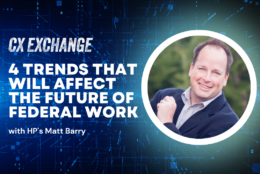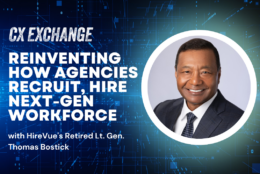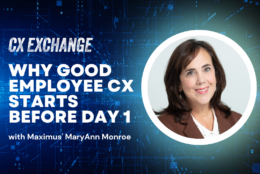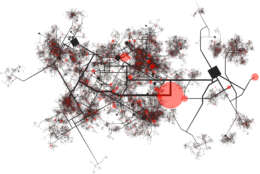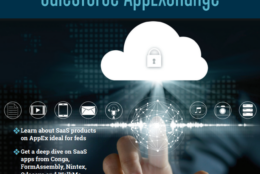SDFM The Business of Defense
-
Today, people want digital services to give them access in no more than two clicks in 10 seconds. That’s why, says Okta’s Sean Frazier, security for government services should resemble wallpaper — doing its job without being distracting.
April 27, 2023 -
As agencies reshape what it means to work in the public sector, we talk to HP Federal’s Matt Barry to better understand how cultural and technology shifts will affect the experience of working in the federal government.
April 27, 2023 -
Republicans in the U.S. House passed a deal that lifts the debt ceiling along with spending cuts aimed at the nation’s health care safety net.
April 27, 2023 -
Federal hiring managers are devising innovative approaches and using new tools to vet candidates. Retired Lt. Gen. Thomas Bostick, who’s a board advisor to HireVue, talks about how to prioritize skills-based hiring rather than focus on experience alone.
April 27, 2023 -
By taking a human-centered design approach, view your agency’s services as your customer would and identify the most troublesome problems and burdens, advises Maximus’ MaryAnn Monroe. She shares more tips with The Federal Drive’s Tom Temin.
April 27, 2023 -
When it comes to employee customer experience, it’s critical to take a lifecycle approach, says Maximus’ MaryAnn Monroe. From before day one to their last day, “everything that happens in between is that employee’s experience with a company or agency.”
April 27, 2023 -
The more organizations adopt cloud-native technologies, the higher the number of cloud-native applications becomes. The popularity and complexity of the technology then expands the attack surface with vulnerabilities and misconfigurations for cybercriminals to exploit. Download this guide to gain more insights on how to navigate cloud security for the future.
April 27, 2023 -
The emergence of 5G technology has the potential to greatly enhance the ability of NCIS to carry out its mission.
April 27, 2023 -
The U.S. Secret Service is a well-known federal agency with a mandate to protect the president, vice president and their families, as well as to investigate financial and cyber crimes. In order to do that effectively, the agency must develop and utilize close partnerships with state and local agencies.
April 27, 2023 -
The Advanced Research Projects Agency for Health, or ARPA-H, is barely a year old and still in its infancy. But one with a big agenda, and an initial budget of $2.5 billion to back it up.
April 26, 2023 -
DoD will not be able to afford a fragmented security posture; its cyber analysts and defenders will need visibility across the entire cloud landscape, rather than having to swivel between separate instances. DoD will need a common picture of user identities, a common means of putting policy and protection onto endpoints, and a common defensive layer.
April 25, 2023 -
Planet uses its constellation of hundreds of small, low-cost satellites to take daily images of the entire earth allowing for a new perspective on defense strategy.
April 25, 2023 -
During this exclusive CISO Handbook webinar, moderator Justin Doubleday and guests Brian Hermann from the Defense Information Systems Agency and Christopher Day from Tenable will explore zero trust progress and strategy at DISA.
April 25, 2023 -
What is the optimal future for your agency’s network? How can you transform your experiences? What security factors should you implement to make convergence possible? We find out from experts at Ingram Micro and T-Mobile.
April 25, 2023 -
In our new Federal News Network Insider’s Guide, we share details for federal users about what the Salesforce AppExchange is, how it works and why it provides value to agencies by extending their investment in Salesforce.
April 24, 2023


